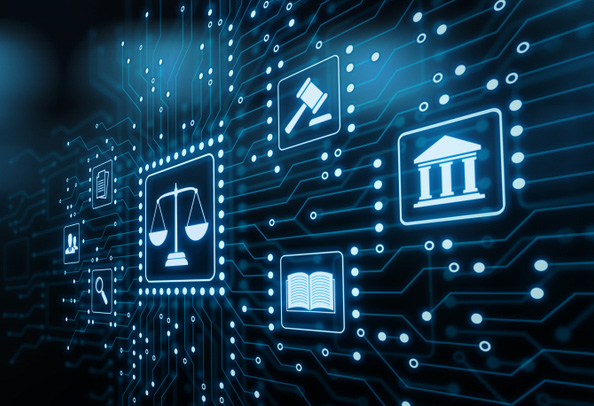Welcome to 2025: The Impact of Generative AI on the Legal Landscape
The year 2025 is upon us, and with it comes the evolving presence of generative artificial intelligence (AI) within various sectors, particularly in law. The ABA Journal’s Legal Rebels podcast offers insights into this technological shift, making it clear that generative AI is not just a passing trend; it has become an integral part of daily operations in law firms, businesses, and government agencies. As we move into this new year, it is essential to take stock of how generative AI has become mainstream and what that means for the legal profession.
The Surge of Generative AI in 2024
Last year was pivotal for generative AI, marking its transition into mainstream usage. More and more stakeholders across the legal landscape began to adopt this technology, integrating it into their workflows. Whether it was law firms leveraging AI for document review or businesses utilizing it for compliance checks, the adoption rate soared. Furthermore, governmental agencies also started to see the benefits of generative AI, which contributed to easing certain bureaucratic hurdles.
Looking Ahead: What Will 2025 Bring?
The main question on many minds is whether 2025 will see an even larger escalation in generative AI’s adoption. With more lawyers, law schools, and other institutions actively utilizing AI tools, the landscape is undoubtedly changing. There are also increasing discussions around how generative AI can assist in decision-making and streamline legal research processes, making information more accessible. All these factors suggest that the trend is set to continue, with AI becoming an even more prominent player in legal practices.
Regulatory Considerations
As generative AI becomes more prevalent, the issue of regulation comes to the forefront. Will there be further governmental oversight regarding the usage of AI in the legal profession? Various stakeholders, including legislators and legal experts, are debating the need for guidelines aimed at ensuring ethical and responsible use of AI technologies. Questions arise concerning data privacy, algorithmic bias, and accountability—issues that must be addressed as AI continues to permeate the legal framework.
Implications for Law Schools
Generative AI’s growing importance also beckons a reconsideration of legal education. Law schools are increasingly integrating AI-related coursework into their curriculums. Professors are beginning to teach students not only the theoretical aspects of AI but also the practical implications of using it within a legal context. This shift in academia prepares future lawyers to navigate a landscape increasingly influenced by technology, equipped with the skills needed to utilize AI effectively and responsibly.
Expert Perspectives from Oliver Roberts
In a recent episode of the Legal Rebels podcast, Victor Li interviewed Oliver Roberts, a leading voice in AI and law. With his diverse experience as the editor-in-chief of AI and the Law and as co-chair at Holtzman Vogel’s AI practice group, Roberts offers invaluable insights into the trajectory of generative AI. He asserts that education and training will play an essential role in how legal professionals adapt to new technologies. Having been involved in teaching AI-related courses at various prestigious law schools, Roberts emphasizes the necessity for practitioners to stay ahead of the learning curve.
Conclusion
As we navigate through 2025, the legal community must be vigilant about the transformations brought on by generative AI. The evolving technological landscape presents both opportunities and challenges. Embracing this technology can lead to increased efficiency and access to information, but it also necessitates careful consideration of ethical guidelines and regulatory frameworks. Continuous education and training will be crucial in ensuring that legal professionals can effectively leverage AI while adhering to the highest standards of practice.
FAQs
What is generative AI?
Generative AI refers to a subset of artificial intelligence that uses algorithms to generate new content, insights, or solutions based on existing data. It can be applied in various fields, including law, to automate tasks and enhance decision-making.
How is generative AI affecting the legal profession?
Generative AI is changing the legal landscape by streamlining processes like document review, enhancing legal research, and improving compliance checks, allowing lawyers to focus on more complex and strategic tasks.
Are there any regulations on the use of generative AI in law?
As of now, discussions around regulations are ongoing. Legal professionals and legislators are considering the implications of AI on ethics, data privacy, and accountability, seeking to establish guidelines for responsible use.
Will law schools start teaching more about generative AI?
Yes, many law schools are beginning to integrate AI coursework into their curricula, preparing future lawyers for a profession increasingly influenced by technology.
What role does Oliver Roberts play in the conversation around generative AI?
Oliver Roberts is a prominent figure in the field, serving as the editor-in-chief of AI and the Law and co-chair of Holtzman Vogel’s AI practice group. He is actively involved in educating others about the implications and applications of AI in legal settings.

